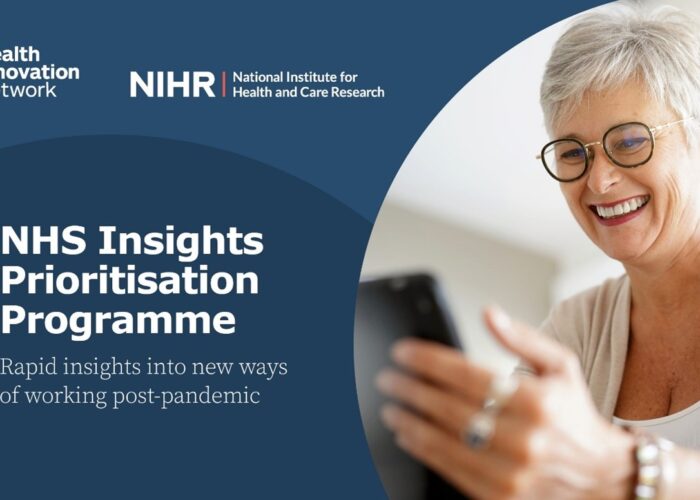One recent entry in our daughter’s Red Book reads “parent declined advice to give vitamin drops”. This followed a discussion with our health visitor about the merits or otherwise of vitamin drops for toddlers. After all, we are going a long way in cooking fresh food, when reverting to pre-prepared dishes looks tempting most nights after a long day in the office.
I say “discussion with our health visitor”, but what we really experienced was a brief exchange where we asked whether vitamins were really necessary given her diet, just to be told that the advice was to give them anyway regardless of personal circumstances and no – sorry – she didn’t have any evidence to back this up.
This would have been the end of the matter hadn’t we later seen the entry in her Red Book.
Consequently I had a quick look on NHS Choices which indeed recommends vitamin drops. Again, no references to clinical evidence. A brief web search and browse through the Cochrane Collaboration database (if you are not using this yet, you will learn to love it) drew a blank too. I decided to email NHS Choices directly and ask for the underlying clinical evidence for their recommendations. 12 days later I received the following email:
Dear Axel,
Many thanks for your patience in this matter.
This page is based on Department of Health recommendations plus advice from the British Dietetic Association and it would be best to ask them directly for the references.
To contact the Department of Health Via email, please use the contacts page below http://www.info.doh.gov.uk/contactus.nsf/memo?openform
To contact the British Dietetic Association please use the contact page below: http://www.bda.uk.com/contact.html
Not exactly what I would have expected from the main patient information portal of the NHS – I would have expected transparent and auditable sources of the information that is provided.
In the end, I emailed both organisations. Five days later I did get an email from the BDA assigning me a named person who would provide a response within 10 days. That was 20 days ago and counting.
Meanwhile, I have not received a response from the Department of Health other than an automated acknowledgement of my email which had an intriguing line:
If your enquiry is about a medical matter, please contact NHS 111 or visit NHS Choices, or contact your GP surgery.
They may want to add health visitors to their list. I’m therefore not getting my hopes up that I will get an answer any time soon.
Vitamin drops are not cancer treatment and waiting months for an answer (or not getting one at all) is probably neither here nor there.
I’m not recounting this episode to have a rant. The point I’m trying to make is a more fundamental one. If we want to succeed in our quest to reduce unwarranted variation in practice across the NHS, just focusing on the “supply side” is unlikely to be sufficient. Yes, we need better commissioning and more transparency on adherence to, for example, NICE guidance. But unlocking the power of the patient voice promises to be equally or even more important. Patients demanding evidence on why proposed treatments are best will transform the traditional relationship of doctor and patient. In some areas this is already happening, for example with HIV and other long-term conditions. But in most areas we still have a long way to go.
If the above example is anything to go by (and it may not), it is still far too difficult for patients to navigate the vast evidence base – and in some cases we know that it is equally impossible for medical professionals given the proliferation of knowledge. Here are some thoughts:
– Firstly and arguably most fundamentally, unless we create a culture where health professionals – in our case health visitors – have the courage to expose the limits of medical knowledge and explore the room for personalised decisions jointly with patients, we won’t succeed. This requires a new type of relationship between patient and health professionals, one that accepts that there are few definite answers and genuinely engages and considers the patient and their circumstances and wishes in care decisions.
– Secondly, this will only work if patients accept their responsibility to be inquisitive. I wish someone would take a look at the average time we spend researching and deciding on our new car or TV, compared to our choice of hospital or clinician.
– Thirdly, we need to find better ways of presenting and summarising evidence – academic journals are an important filter but they are often inaccessible for those not working in one particular speciality area and certainly most patients. Cochrane has made a start in displaying meta-studies in more intuitive ways but just imagine what could happen if people like David McCandless (Information is Beautiful) or Hans Rosling (Gapminder) focused their creative brains on the task (there are plenty more so forgive me).
– Fourthly, NHS Choices should not publish any advice without a reference to the primary evidence. If there is no or conflicting evidence, say so.
– Finally, don’t make patients do all the hard work – treat them as valued customers and support them in making informed healthcare decisions. Don’t send them from pillar to post or, in the case of the Department of Health, in circles while at the same time theorise about the power of patient engagement.
Photo credit: http://www.sheknows.co.uk/



